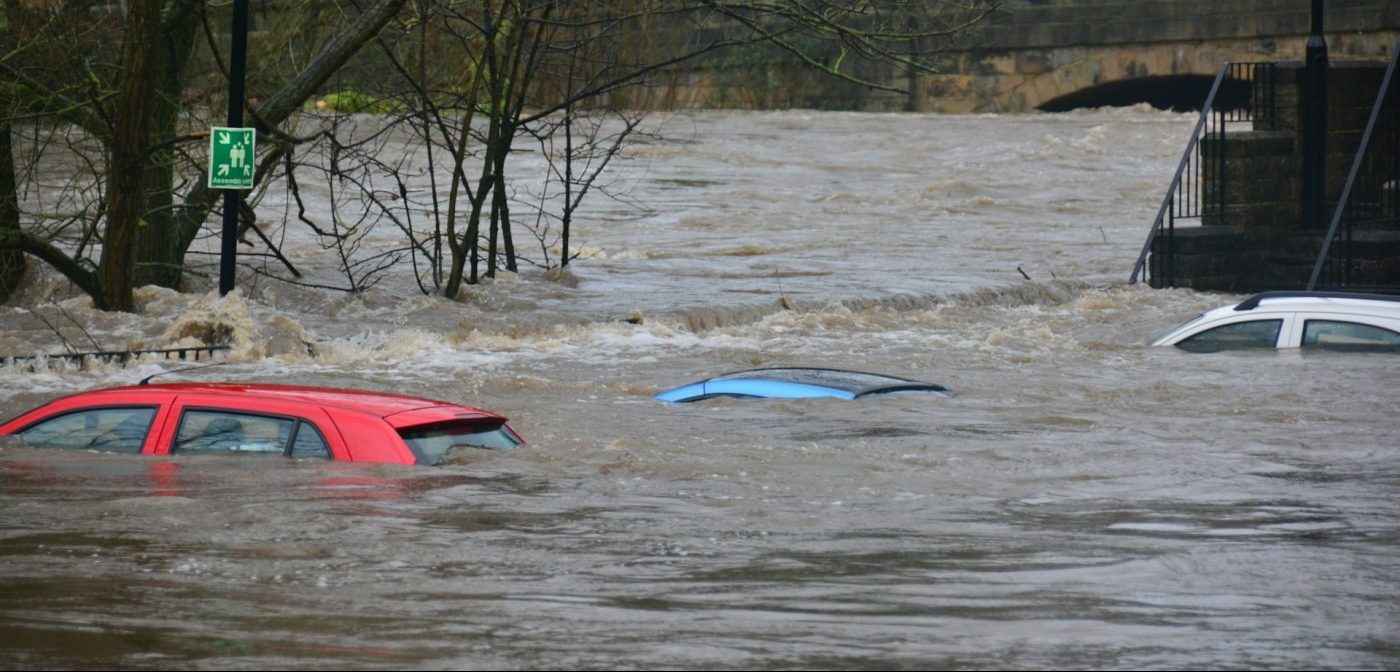What does each party’s manifesto have to say about flooding?
After extreme floods in 2023, UK politicians called for the government to take a different approach to flood defences. This is a pressing issue, with flood risks only growing as the planet warms. Non-profit Round Our Way reported that flood alerts were higher than ever in the first four months of this year. With polling suggesting huge changes in the Commons after the election, it is worth combing through some party manifestos to see what the future holds for flooding and flood preparedness in the UK.
The incumbent Conservative party have committed to maintaining their “record flooding funding” of £5.6bn for 2021-2027, although inflation has hampered plans for flood protection so far. Last November it emerged that fewer houses would receive enhanced flood protection as inflation reduced the effective spending power of the Environment Agency. Furthermore, the Environment Agency at present is not without its critics – councillors in Ribble Valley, a flood-hit area, say they have struggled to get flood defences built for years. Despite these issues, the Tory manifesto – which sets out the minimum a party wishes to achieve in Parliament – lacks detail aside from the headline figure, and makes no new promises on flooding.
It is worth mentioning because disaster mitigation is just one side of the extreme weather coin.
The lack of specifics in the Conservative manifesto is matched by the current Opposition, the Labour Party. In all 136 pages of this election’s longest manifesto, the word flooding appears just once. That said, responding to the climate crisis is a feature of one of Labour’s headline policies – the long-touted Great British Energy.
GB Energy is not a flood mitigation policy by any means, but it is worth mentioning because disaster mitigation is just one side of the extreme weather coin. On one side, the impact of extreme weather events must be limited by mitigation, and on the other, extreme weather must be prevented by reducing our dependence on fossil fuels. GB Energy is a vehicle designed to boost clean energy investment and fill the government coffers. If it is successful in accelerating the move to net zero, the incidence of flooding and other extreme weather events should eventually slow.
Those living in flood-hit areas will be pleased to see the specifics in the Lib Dems’ manifesto
The Liberal Democrats elaborate far more on flooding than either of the two main parties. With some commentators tipping them to become the official Opposition, those living in flood-hit areas will be pleased to see the specifics in the Lib Dems’ manifesto, as they promise to enact planning reforms to reduce the impact of flooding and make use of nature conservation efforts to reduce the likelihood of flooding.
In particular, the Lib Dems promise to ensure new housing is not built in high-risk areas without the necessary flood mitigations, which has been an issue under the current government. Tightening planning rules in this way would likely come at only a small cost to the taxpayer, and could slow the long-term rise in flooding.
Having won only a single seat at the last election, the Greens are not projected to do much better this year, with party support spread thinly across the country. Any Green MP elected would therefore play a very different role – pushing for change and seeking to affect the direction of travel rather than specific policies. One of their aims is more funding for the Environment Agency, a departure from the spending plans of the current government. The Greens also seek to fund public investment, including flood defences, by increasing public borrowing and raising capital gains tax.
According to Reform’s manifesto, climate “will always change”.
Plaid Cymru – the Party of Wales, are also predicted to win a sliver of seats in Westminster. They point to infrastructure investment for both mitigation and prevention of flooding.
Any look at the flooding plans of the major parties would not be complete without Nigel Farage’s Reform Party, which overtook the Conservatives by total vote share in a recent YouGov poll. According to Reform’s manifesto, climate “will always change”. The word flooding appears zero times in the manifesto.
Whilst the two major parties have not used their manifestos to provide insight into their plans for flooding, the Lib Dems’ manifesto provides reassurance that there will be real change to the next government’s approach. The quieter voices in the next Parliament – any Plaid and Green MPs – are likely to join the Lib Dems in pushing for increased action, and possibly increased funding over and above the current spending plans. It is worth noting that this article has focused on manifestos as they speak to a party’s priorities, but they contain only a small part of each party’s plans. Whatever the next Parliament looks like, there is reason to be hopeful that the current “sticking plaster” approach to flood mitigation will end.
(At the time of writing, the SNP had not yet released its manifesto.)

Comments (1)
Just wondering what The Green Party has to say about Flooding – curious you haven’t included them of all the parties concerned.